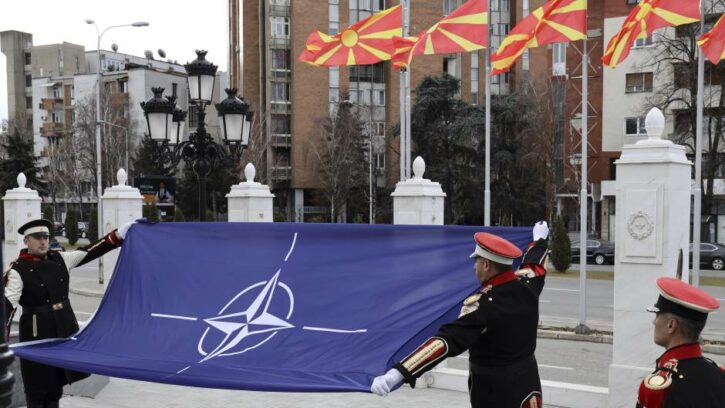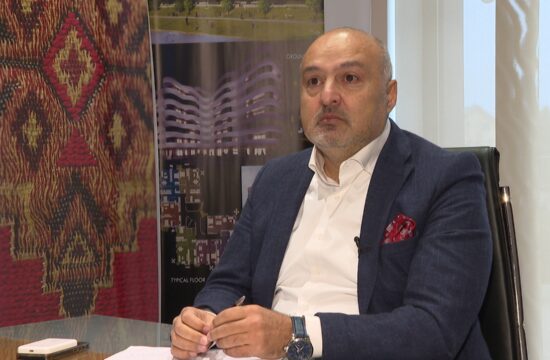
A long-awaited day for Macedonia came on Tuesday with the NATO flag raised outside the seat of the country’s government to the tunes of the Alliances’ hymn, the Beta news agency reported.
The government of North Macedonia, as the country will soon be known as, organised a ceremony attended by NATO and local officials, diplomats, military attaches and the religious leaders.
Zoran Zaev, Macedonia’s Prime Minister, said his country “managed to reach the main motorway leading to Europe after decades of waiting at the sidetracks.”
“We are starting to build a democratic society of equal citizens who strive to adopt European values. No one will block us from outside ever again,” Zaev said.
Macedonia, signed the NATO membership protocol with 29 member states in the Alliances’ headquarters in Brussels last Wednesday, to become the 30th member states, less than two weeks after the 27-year-long name dispute with Greece was finally resolved.
The usual procedure between the signing of the Protocol and full membership lasts 18 months, but Skopje is expected to become a member in June.
Until then, 29 member states’ parliaments have to ratify the Protocol. In the meantime, Macedonia will take part in NATO meetings but without a voting right.
With Macedonia in NATO, Serbia and Bosnia and Herzegovina remain the only countries once part of the former Yugoslav federation that are currently outside the Alliance.
Zaev and Alexis Tsipras, the Greek Prime Minister, agreed on the change of Macedonia’s name into the Republic of North Macedonia last June, removing the obstacle which prevented Skopje from Euro-Atlantic integration for almost three decades after the country declared independence from former Yugoslavia.
Greece objected the name, saying that it implied Skopje’s territorial claim against the Greek province of the same name.
Last Wednesday, Zaev said that “sitting at the same table with NATO, Macedonia secures lasting stability and prosperity,” adding that the country’s progress and development were unstoppable now.




